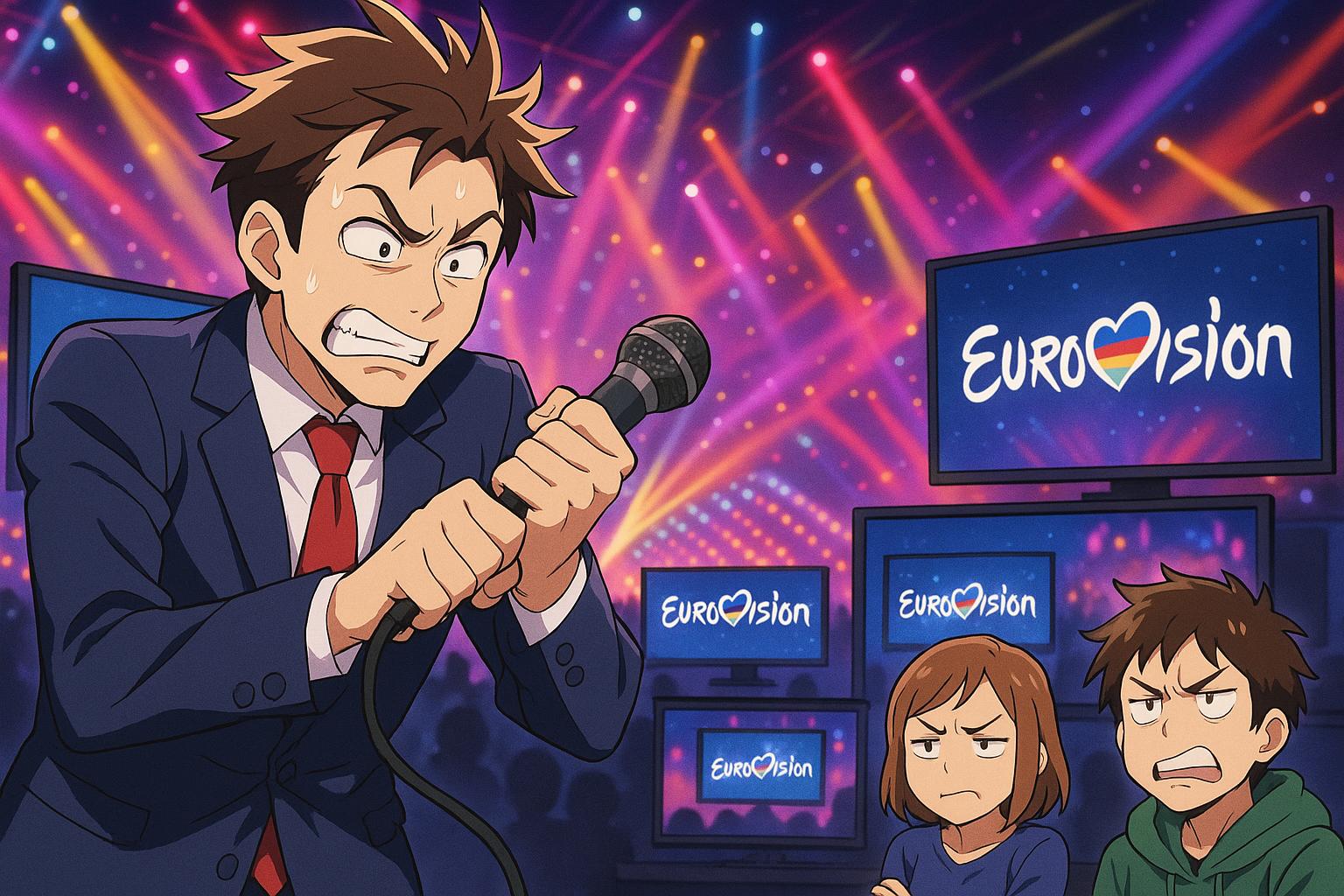Eurovision viewers tuning into the 2025 Grand Final faced immediate frustration as sound issues marred Graham Norton’s commentary shortly after the broadcast began. The celebrated host, who has been anchoring the UK’s Eurovision commentary since 2009, found himself at the centre of a social media storm as fans expressed their concerns over the volume of his microphone. Viewers reported difficulties hearing his signature quips and insights during the live show, a disappointment for many who cherish his irreverent take on the event.
As the final kicked off from the St Jakobshalle in Basel, Graham, who had just made a surprise cameo as a hologram in the BBC's Doctor Who, was expected to bring his usual flair and wit to the proceedings. He set the stage with a playful tease about possible surprise appearances, including that of music icon Celine Dion, but the excitement quickly turned to dismay when his commentary became almost inaudible. Social media users rushed to platforms like X, formerly Twitter, sharing their frustration. One user commented, “Good start BBC. #eurovision,” reflecting the initial dissatisfaction among viewers who had anticipated his insights throughout the show.
This isn't the first time the BBC has faced scrutiny over audio quality during a live broadcast. In previous years, particularly during the Eurovision Song Contest, viewers have reported similar complaints regarding commentary sound levels. In 2024, for instance, Graham's audio issues drew widespread attention as well, prompting a wave of comments regarding the technical setup at the venue. The sudden inability to hear a beloved host raises concerns not only about the production logistics but also about viewer satisfaction, particularly for an event that garners millions of viewers globally.
In the face of this criticism, the BBC reportedly acted quickly to rectify the sound issues during the final, allowing Graham’s commentary to become clearer just as Albania’s entry, Shkodra Elektronike, took the stage. Despite the hiccup, it seems that Norton's reputation as a commentary favourite among fans remained intact, with many viewers expressing their appreciation for his unique style even amidst technical setbacks. One fan remarked, “Does anyone else watch Eurovision primarily for Graham Norton’s commentary? He is a legend.”
Moving forward, such technical difficulties underscore the importance of rigorous sound checks before major broadcasts. Eurovision, as a cultural phenomenon, thrives on the interplay of music and commentary, and ensuring smooth delivery is crucial in maintaining viewer engagement. As the competition continues to grow in popularity, the expectation for flawless production quality becomes even more pronounced, further emphasising the challenges faced by live broadcasts in an age where audiences have heightened standards for viewing experiences.
Despite the rocky start, Eurovision maintains its ability to unite fans across Europe, with or without technical perfection, ushering in another entertaining evening that promised dramatic performances and memorable music. For many, the core of the experience lies in moments like Graham Norton’s commentary—regardless of a few audio missteps along the way.
Reference Map
- Paragraph 1: [1], [3], [5]
- Paragraph 2: [1], [2], [4]
- Paragraph 3: [2], [6], [7]
- Paragraph 4: [1], [3], [5]
- Paragraph 5: [1], [4], [7]
Source: Noah Wire Services
